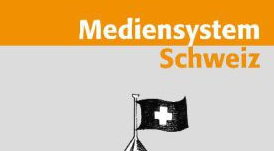Neue Zürcher Zeitung, May 28, 2004
On the Influence of Leading Media
Circulation numbers and television ratings cannot by themselves determine whether or not a media product is influential. It is no less important to examine how a media product is accepted by a specific group of professionals: the journalists themselves. In a comprehensive study, Carsten Reinemann from the University of Mainz has analyzed how journalists in Germany use the media.
First of all, he clarifies that what communication scientists have often liked to describe and criticize as "orientation towards colleagues" is in fact indispensable and necessary professional behavior: "A crucial journalistic motive for the observation of other media is to try to ensure the competitiveness and relevance to the public of one’s own reporting." This orientation towards the audience is therefore a fundamental reason why journalists continue to follow the trends set by other media.
According to Reinemann, political journalists spend four and a half hours daily informing themselves about current media coverage – for which the print media especially have remained a "common basis of information". Just as with the general public, the age differences of journalists are reflected in their choice of media: the older ones devote more time to daily newspapers, while younger ones surf the Internet more intensely.
Der Spiegel is still a mandatory read for political journalists in Germany. Four out of five devote their attention to that magazine each week. The competitor Focus may have overtaken the Hamburg news magazine in terms of absolute readership, but only "about two out of five journalists" actually read Focus. In Germany, the daily newspapers most observed by journalists are, with between 60 and 70 percent daily, the Frankfurter Allgemeine Zeitung, the Süddeutsche Zeitung and the tabloid Bild – followed at some distance by Die Welt. The Berliner Zeitung has gained significance, as has the Tagesspiegel, which also appears in the German capital. In television, the news services of ARD and ZDF dominate; nine out of ten journalists follow them daily. Among the private providers, only the news channel N-TV comes close to matching ZDF’s numbers. The Frankfurter Rundschau and Die Zeit as well as political television magazines have lost audience and therefore importance.
Another interesting finding: journalists, too, prefer the media closest to them. The journalists who classify themselves as being in the middle of the political spectrum "often have a larger media repertoire than their 'left-wing' and 'right-wing' colleagues". Reinemann attributes this to "those journalists’ greater need for orientation". This statement may be put more pointedly: those whose political opinion is set, may not want to know some things in too much detail.
Carsten Reinemann: Medienmacher als Mediennutzer. Kommunikations- und Einflussstrukturen im politischen Journalismus der Gegenwart. Köln: Böhlau-Verlag 2003.
(Translation: Jasmin Bodmer)








































